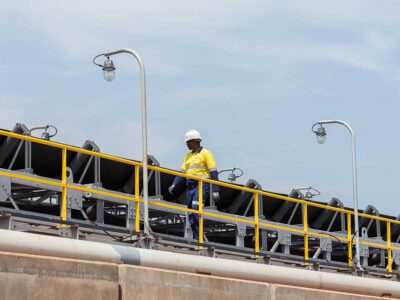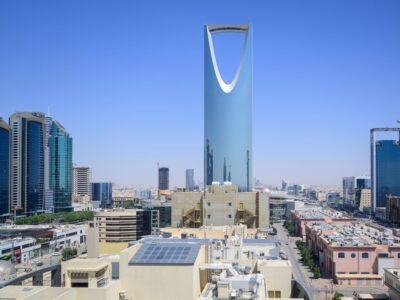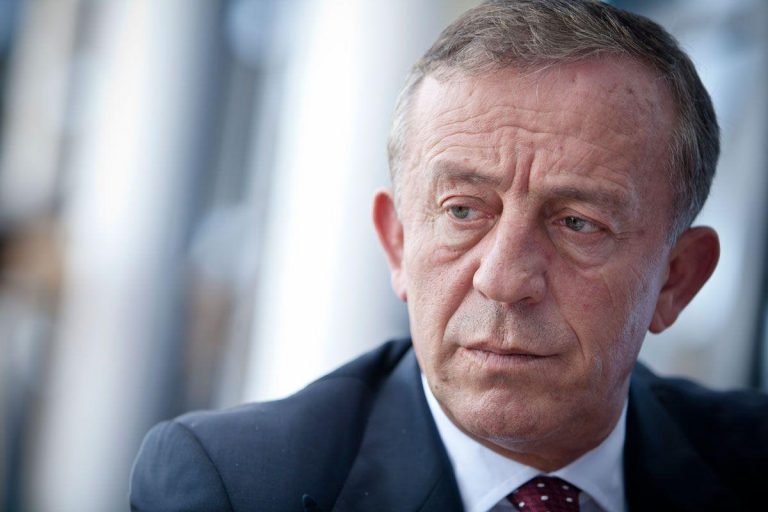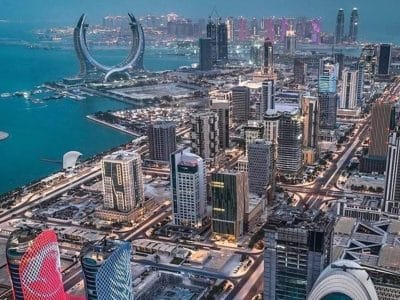It was at the age of eighteen while working for his father that Ali Agaoglu embarked on a career in construction. Now at 59, the self-made billionaire and Turkey’s eighth richest man is helping rebuild Istanbul, once the capital of the Ottoman Empire.
Of course it helps that Agaoglu, and his construction and real estate company, Agaoglu Group have the support of Turkish prime minister Recep Tayyip Erdogan.
“We’ve been friends since 1990 even before he became prime minister,” Agaoglu says in an interview with CEO Middle East. “Twenty three years ago I was building close to 200 villas near Istanbul and I sold one of those villas to the brother of the first lady and this is how we met.”
Agaoglu speaks fondly of Erdogan, who he sees as a pillar in the country’s development next to Mustafa Kemal Atatürk, who led a nationalist revolution and founded the secular republic of Turkey, and Turgut Ozal, who led Turkey out of military rule and ushered in an era of privatisation that helped develop the country’s economy.
“He is a visionary, a strong leader,” Agaoglu says of Erdogan. “The GDP of our country was $220bn when he took office and in these ten years our GDP has increased four times to $880bn. In 2023 we are expecting a GDP of $2 trillion. Erdogan is a very strong leader supported by more than 50 percent of society and he is unique.”
Part of Erdogan’s vision has been the building of a financial centre to position Istanbul as an international financial hub by 2023, marking the country’s 100th anniversary as a republic. Turkey’s economy today, in stark contrast to its economic woes of the late 1990s and 2001, is booming. Unemployment is declining, and industries are expanding.
The country’s economy is estimated to have grown 3 percent last year due to the debt crisis in Europe and contracting economies there. In 2011, Turkey recorded GDP growth of about 8.5 percent and 9.2 percent the year before.
Economic growth over the past ten years has also served as a catalyst for the urban renewal and gentrification of Istanbul. That is very much in line with Erdogan’s vision to widen the size of the city to meet increasing demand from a growing population and internal migration in addition to the construction of new buildings to replace older ones prone to collapsing in the event of an earthquake.
For Agaoglu Group, one of Turkey’s largest construction companies, the country’s development and the firm’s evolution go hand in hand and it’s launched a charm offensive to attract businessmen from the Arab world to invest in the country’s property market. The construction industry accounts for about 4 percent of Turkey’s GDP.
Agaoglu plans to issue $2bn in sukuk, or Islamic bonds, starting next month to help with the financing of Istanbul’s International Financial Centre.
The company “has been undertaking construction work of the financial centre and we will be issuing some new financial instruments such as murabaha, sukuk and real estate certificates,” Agaoglu says. “We have been carrying out the preparation work for all of those instruments. With this new set of financial instruments we will be offering more to the Gulf region.”
Turkey issued its first ever Islamic bond of $1.5bn in September which saw strong demand from the oil-rich Gulf. Last year about $144bn of sukuk were issued, according to Islamic Finance Information Service. The country, which is the sixteenth largest economy in the world, attracted about $16bn in foreign direct investment in 2011, according to the United Nations Conference on Trade and Development. That’s more than the inflows to countries such as Korea, Malaysia, Argentina, Peru, Belgium, Denmark and Portugal.
Article continued on next page…
Agaoglu Group, founded in 1981, is expanding its development projects and wants to capitalise on new legislation that allows foreigners to own property in the country. In particular it is seeking to tap the wealth of investors from the Gulf in projects like its 322,000 sq m Maslak 1453 development. Agaoglu wants to more than double residential and commercial sales this year from Gulf investors.
The housing market in Turkey, particularly in Istanbul, is booming on the back of a growing population, high domestic demand and higher income level of households, says Alp Sen of the Ernst & Young consultancy.
“Having a very young population leads to increasing number of newly opened universities,” says Sen. “The more students that travel from all over the country the more housing units are required.”
The existing stock of housing in the country that is old with weak building designs against earthquakes is also contributing to an increase in construction activity. Earthquake prone Turkey sits on two fault lines.
“We have a very strong track record of financial stability as a group of companies and we have a very high sales capability,” Agaoglu, whose wealth is estimated at $2.7bn by Forbes, says when asked how the company is financing its projects.
“We are selling more than 4,000 units a year,” he adds. “One of the factors that contributes to this financial strength is that we build most of our projects on our own land.
“We also cooperate with the real estate investment partnership that is directly affiliated to the mass housing administration of Turkey that is directly affiliated with the Prime Ministry of Turkey. We work on a turnover-sharing basis and we share the financing of the projects with the real estate investment partnership.”
The property market in Turkey is booming and ranked among Europe’s top five markets according to studies by PricewaterhouseCoopers and Ernst & Young. Istanbul’s real estate sales number reached 24,244 in the fourth quarter of last year with a 24.8 percent increase from the third quarter, according to official government figures.
“We believe we will be selling about $500m,” says Agaoglu on how much his company estimates in new revenue from Arab investors. The company has already sold about $350m worth of residential property to investors from the Arab world since a reciprocity law was enacted last year.
Agaoglu expects sales to increase further once additional portions of the Maslak 1453 project are put on the market. The company opened a representative office in Dubai in March to promote Agaoglu projects and tap the wealth in the Gulf.
“We have ongoing negotiations with some corporate investors from the Gulf region and we are planning to sell towers,” he says, adding: “I believe we will be concluding the negotiations to sell three towers in the coming week.”
Agaoglu has so far completed about 15 percent of the Maslak 1453 project which it expects to deliver in 2015. Of the 4,800 residential units in the project Agaoglu sold 2,200 in fifteen days only.
Article continued on next page…
“Even a shop that sells socks cannot sell 2,200 socks in a week,” Agaoglu says. “I think it’s a very good indicator of how dynamic the market is.”
He dismisses the possibility of a housing bubble and says the company may have an initial public offering on the Istanbul Stock Exchange next year, without offering additional details.
“When it comes to Turkey we are a population of 75 million people and we have a very dynamic market and growing internal demand,” he says. “As a construction sector we are developing and selling 350,00 to 400,000 residences per year. That being the case we are not expecting such a risk.”
In London, the only market where the company operates outside of Turkey, the group may cancel plans to build two towers near Canary Wharf if Agaoglu and the Greater London Authority don’t resolve differences over the specifications of the project, he says.
“When we first started the project we were planning to have 54 floors but the municipality is trying to reduce it to 40 floors and it’s a major problem,” says Agaoglu. “The project will be losing its essence and all its peculiarities and that is why if they push us to do so we may cancel the project.”
Agaoglu had planned to build two towers of 157 metres and 122 metres that would include residential units and a hotel near Canary Wharf, London’s financial and business district.
Agaoglu would have earned about £567m in revenue from the project which would have cost the £189m to build. The two towers would have included a total of 371 apartments and a five star hotel with 210 rooms. The project, if completed, would be Agaoglu’s first outside of Turkey.
Agaoglu is unwaveringly bullish and believes the property market in Turkey will rise to the top in Europe in terms of sales.
“There is no shrinkage in demand because of the urban regeneration and the new law on reciprocity will help us attract international investors,” he says. “With this demand and price and the fact that we don’t have a bubble and prices are below the world average I believe we will continue to rank among the top five markets in Europe and even be first,” says Agaoglu.
Agaoglu says he owes much of his success to having been in what he describes as his father’s “kitchen.”
“I was really lucky because my father himself was a very successful businessman. I learned from the very beginning. I don’t have any regrets about the past,” he says.
“If being transparent made me lose one time it made me win ten times. Being transparent, having integrity and working honestly is the most important thing I learned.”








